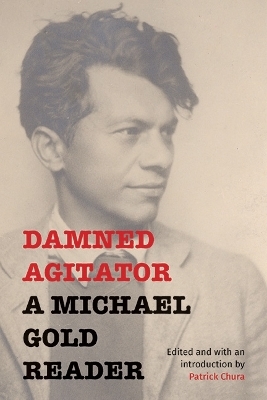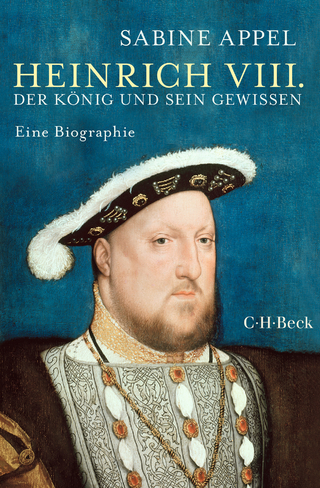
Damned Agitator
State University of New York Press (Verlag)
978-1-4384-9533-0 (ISBN)
"Is it time to release Michael Gold from his personal gulag to range free in the pastures of 20th-century American literature?" — Jim Hoberman, The Nation
This definitive collection of fiction, drama, poetry, and journalism, edited by the author of the award-winning biography Michael Gold: The People's Writer, shows why Michael Gold was once the most famous radical writer in America and why his pro-democracy message still matters. From 1914 to 1966, Gold produced a body of literature best defined as "the direct expression of a man who is angry about something"—the injustices of American society. From his early support for radical leaders like John Reed and solidarity with impoverished immigrants and exploited workers, to his determined support for the Civil Rights movement and opposition to the Vietnam War, Damned Agitator shows how Gold directed his righteous indignation to advocate for those who were least able to advocate for themselves. This collection is the first to include the full range of Gold's writings, from poetry, fiction, and drama to literary criticism, personal memoir, and social commentary. At a time when democracy is threatened worldwide, Michael Gold is freshly relevant to a new generation. Though his legacy has been largely erased, this book recovers the deep political passions of the "damned agitator."
Patrick Chura is Professor of English at the University of Akron. He is the author of Michael Gold: The People's Writer, also published by SUNY Press.
Introduction
Part One
"Three Whose Hatred Killed Them" (Poetry, 1914)
*"A Freshman at Harvard" (Journalism, 1914)
*"Anarchists in Plymouth" (Journalism, 1916)
*"First Aid" (Short Story, 1916)
*"To One Dying" (Poetry, 1916)
"A Damned Agitator" (Short Story, 1917)
"Birth: A Prologue to a Tentative East Side Novel" (Fiction, 1917)
*Money (Drama, 1920)
Part Two
From "Towards Proletarian Art" (Essay, 1921)
"The Password to Thought—to Culture" (Short Story, 1922)
*"Smoke and Steel" (Journalism, 1922)
"The Strange Funeral in Braddock" (Poetry, 1924)
Foreword from 120 Million (Collected Works, 1929)
*"Coal Breaker" (Short Story, 1929)
"Faster, America, Faster!" (Short Story, 1929)
*"The Girl by the River" (Poetry, 1929)
"Lynchers in Frockcoats" (Essay, 1927)
"John Reed and the Real Thing" (Essay, 1927)
"Go Left, Young Writers!" (Editorial Commentary, 1929–1930)
"Art, Crap Shooting, Etc." (Editorial Commentary)
"Letter from a Clam Digger" (Editorial Commentary)
"The New South" (Editorial Commentary)
"The Crisis Deepens" (Editorial Commentary)
"Renegades and Radicals" (Editorial Commentary)
"Give Us Barrabas!" (Editorial Commentary)
Part Three
"Bananas" (Fiction, 1930)
"Wilder: Prophet of the Genteel Christ" (Essay, 1930)
"Proletarian Realism" (Essay, 1930)
From "Why I Am a Communist" (Essay, 1932)
*"Examples of Workers’ Correspondence" (Journalism, 1934)
*"Songs for the Masses" (Journalism, 1936)
"They Hated Jane Addams" (Journalism, 1934)
"For a New World Fair" (Journalism, 1934)
"In a Home Relief Station" (Journalism, 1933)
"Just Like Lindbergh’s Baby" (Journalism, 1934)
*Battle Hymn, Act III, Scene 1 (Drama, 1936)
*"What Side Are You On?" (Journalism, 1939)
Part Four
"The Second American Renaissance" (Public Address, 1941)
"Renegades: A Warning of the End" (Essay, 1941)
*"The Crime of Lynching and Its Utility to the Southern Ruling Class" (Journalism, 1940)
*"Some Reflections on Richard Wright’s Novel, Native Son" (Journalism, 1940)
*"Still More Reflections on Wright’s Novel, Native Son" (Journalism, 1940)
*"Pappy Gold Meets Woody and Finds It’s Catchin’ " (Journalism, 1940)
*"Woody’s Songs Full of Poverty and Genuine Dirt: Democracy Is like That" (Journalism, 1943)
*"Some Words on the Loss of a Good Comrade and My Brother" (Journalism, 1946)
*"Further Notes on the Life of a Good Comrade and My Brother" (Journalism, 1946)
*"Final Notes on the Life of a Good Comrade, My Brother" (Journalism, 1946)
"Moe the Barber and the Young Vet" (Journalism, 1946)
Part Five
*From The Honorable Pete, Act I, Scene 7 (Drama, c. 1950)
"Spring in the Bronx" (Poetry, 1952)
*Autobiographical Manuscripts (c. 1951–1953)
*"Americans Want to Be Loved" (Unpublished Poem, c. 1953)
"The Rosenberg Cantata" (Poetry, 1954)
*"The Troubled Land" (Personal Essay, 1954)
*"A Reply to William Faulkner’s ‘Thinking with the Blood’ " (Journalism, 1956)
*"A Word to ‘Tired Radicals’ " (Journalism, 1957)
*"A Long Day in a Short Life" (Journalism, 1957)
*"A One-Man United Front: Du Bois for President" (Journalism, 1958)
Part Six
*"Message of New Epoch: ‘Freedom Is Indivisible’ " (Journalism, 1963)
*"What Tereshkova Accomplished Here" (Journalism, 1963)
*"The Birmingham Bomb Was Warning to America" (Journalism, 1963)
*"A Vivid Recollection of Elizabeth Flynn" (Journalism, 1964)
*"Paean to Pete Seeger and American Music" (Journalism, 1958)
*"The Songs of Hope, and Their Singers" (Journalism, 1964)
*"Bob Dylan—Voice of America’s Youth" (Journalism, 1965)
*"We’re a Long Way from Lincoln’s Dream" (Journalism, 1965)
*"About Broad Humor and Intense Tragedy" (Journalism, 1965)
*"No Songs and Flowers for the Vietnam Slaughter" (Journalism, 1966)
*Autobiographical Notes (Memoir, 1965–1966)
*"Change the World! A Warm Farewell" (Journalism, 1966)
Bibliography
Name Index
Subject Index
*These works have not appeared in previous collections of Gold’s writings.
| Erscheinungsdatum | 04.11.2023 |
|---|---|
| Einführung | Patrick Chura |
| Zusatzinfo | Total Illustrations: 0 |
| Verlagsort | Albany, NY |
| Sprache | englisch |
| Maße | 152 x 229 mm |
| Gewicht | 227 g |
| Themenwelt | Literatur ► Essays / Feuilleton |
| Geisteswissenschaften ► Geschichte ► Regional- / Ländergeschichte | |
| Geisteswissenschaften ► Philosophie | |
| ISBN-10 | 1-4384-9533-1 / 1438495331 |
| ISBN-13 | 978-1-4384-9533-0 / 9781438495330 |
| Zustand | Neuware |
| Haben Sie eine Frage zum Produkt? |
aus dem Bereich


